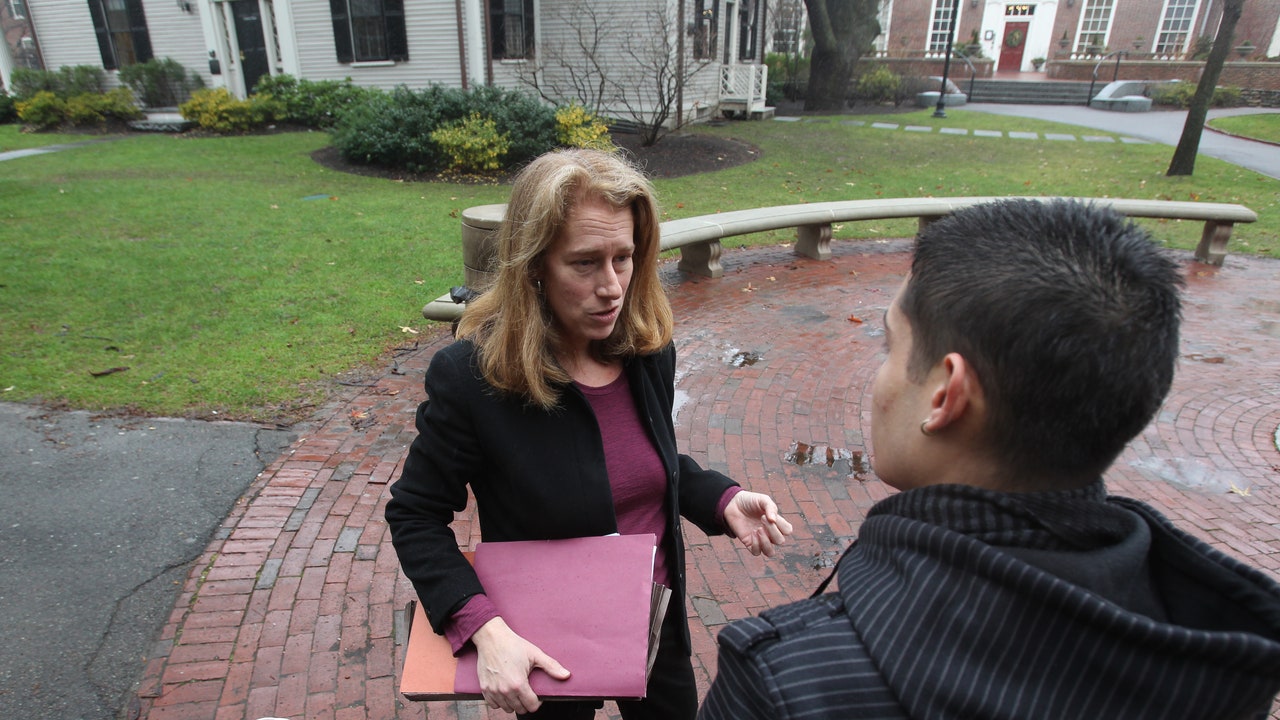It’s not unlike what we’ve heard from DOGE.
Of course, with Twitter, if he creates a huge legal mess, he has to pay for it. With the government, he went in with his usual tactics of slashing and burning and creating chaos and havoc, and then he slithers away and he leaves a huge mess in the hands of the US government, particularly taxpayers, who then have to pay for all the legal claims that he created. He doesn’t own the government, even though he thinks he does.
What do we know so far about what’s happened with the federal workers who accepted DOGE’s deal to resign in exchange for severance after the “fork in the road” email?
It’s not clear yet whether the government will, or even can, make good on the promises that were being told to the federal workers. There was a lot of internal outcry among federal workers, in which many of them just said, No, I’m not going anywhere. But a lot of employees understandably wanted to get out of there. For plenty of people who took their chances and are still waiting to see if the promises are made good on, they just don’t know yet.
Your name first got on my radar when you were fighting to get gig workers classified as employees in California. That happened at a very different time for worker activism, particularly in tech. Now there are so many layoffs in the tech industry. I wonder if you have seen a chilling effect in your work.
It’s always been challenging for workers to stand up, because they feel like the odds are stacked against them, and to a large degree, our legal system does make it very difficult. That’s a big reason why I devoted my career to this area of law. We do have a lot of great laws on the books, but the laws are not very good if they can’t be enforced. Arbitration clauses [which require workers to resolve issues through private arbitration, rather than court] are probably the biggest obstacle that I’ve come across in my career to enforcing laws.
It started becoming an issue way back in the late 2000s. I started seeing companies try to use arbitration clauses to block class action lawsuits. Back then we used to be pretty successful in knocking them down. But then there was a sea change around the year 2011 in a Supreme Court decision that was authored by the late justice Antonin Scalia, the Concepcion decision. It basically handed a huge weapon to employers, enabling them to use arbitration clauses to block class actions and allow companies to violate the law for all of their workers, essentially, with impunity.
Workers bound by arbitration clauses have to come forward and get a lawyer to bring a claim. They might be able to get a recovery for themselves, but it’s not a method to actually change a company’s practices.
When we first started losing some of our cases to arbitration, I started turning the tables on the employers. We said, Okay, if you want to do these cases one by one, we’ll show you one by one, and I started bringing mass arbitrations. Now, instead of doing class actions, a lot of what I’ve had to spend my time on is bringing a whole lot of arbitrations. It kind of reached a zenith when I was bringing tens of thousands of individual arbitration cases for gig workers. We’re still pursuing thousands of them.
So in a situation like this with Twitter, it’s 2,000 cases. We’ve done way more than 2,000 cases before. The difference is, we’re actually doing them all. A lot of times we do a bunch of arbitration cases, and at some point, usually, the employer really sees the writing on the wall and says, Okay, let’s try to resolve this for everybody. For Twitter, it looks like we’re very likely just going to do every case.
I guess Musk is betting that with all his resources, he’ll wear you out before you wear him out.
He must not know me very well.
